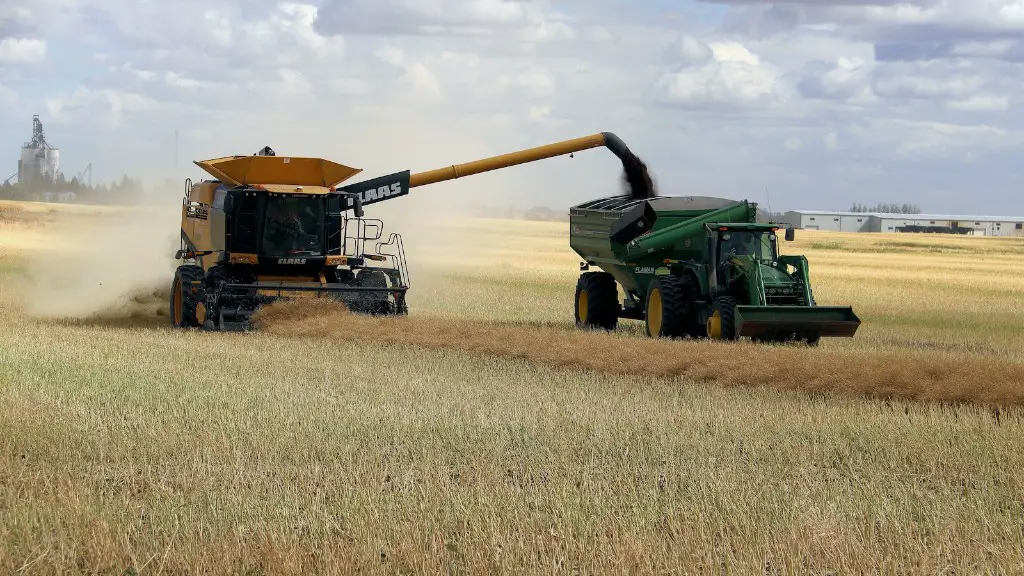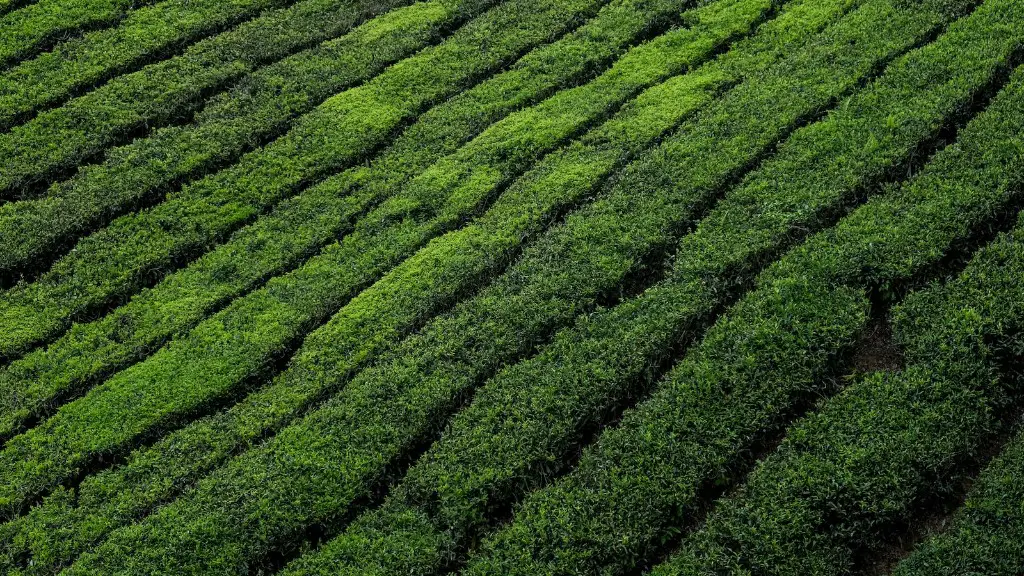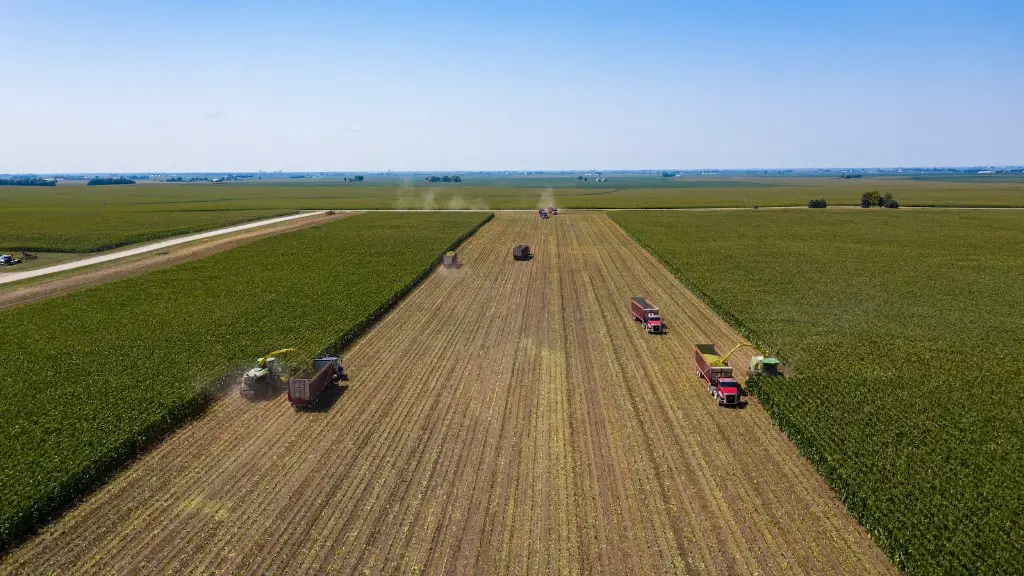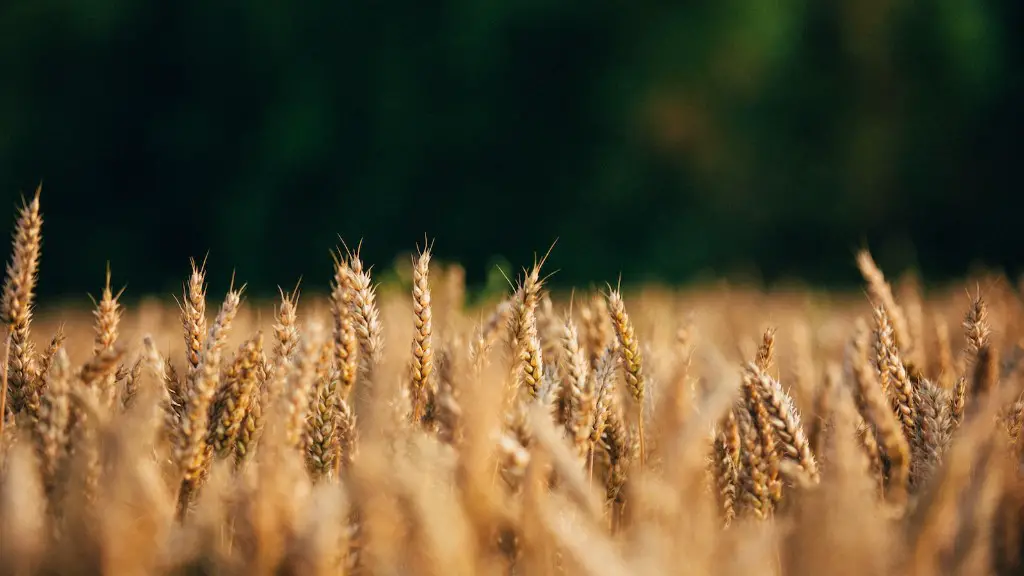What is “FYM” in Agriculture? FYM, or “Farm Yard Manure”, is the term used to refer to organic matter that has been used in agricultural processes. This organic matter is typically composed of plant and animal residues, and can include things such as hay, straw, manure, and compost. FYM has long been used by farmers to add fertility and nutrition to the soil, leading to better agricultural yields and improved soil quality. FYM is added to soil in the form of mulch, compost, or direct application, and can significantly help improve the health of soil.
The Benefits of Employing FYM
Using FYM in agriculture offers many benefits to farmers. For example, FYM can create a nutrient-rich environment in the soil, allowing plants to better absorb water and minerals, leading to healthier crops. In addition, FYM can also help improve soil structure and texture, which can lead to improved water drainage and greater aeration. By creating a healthier and more productive soil, farmers may be able to use less chemical fertilizer, leading to cost savings.
FYM can also help protect soil from erosion, as organic material helps to bind soil structures together, creating a longer-lasting soil condition. In addition, organic material in FYM helps to create a thriving population of soil microorganisms, which are essential to the health and fertility of the soil. Finally, using FYM in agriculture can be an important tool for conserving biodiversity, as organic matter can act as a habitat for small organisms on which many animals depend for sustenance.
The Disadvantages of FYM
Though there are many advantages to using FYM in agriculture, there are also some potential drawbacks to be aware of. In some cases, organic matter may contain residues of toxic chemicals, such as pesticides or heavy metals. If these harmful substances are not removed before being used as FYM, they can cause serious problems. Additionally, application of FYM can also reduce biodiversity, as organic matter can be inhospitable to some creatures. Finally, FYM can actually cause soil compaction if added in too large of quantities, creating an unfavorable environment for plants.
Methods of Utilizing FYM
There are two main methods of incorporating FYM into soil: above-ground application and below-ground application. Above-ground application, also known as broadcasting, involves spreading FYM evenly over the surface of the soil. This method can cause some compaction, so it should be used cautiously. Below-ground application, or incorporation, involves plowing and digging the FYM into the soil, reducing compaction risk, as well as enhancing soil texture and water retention.
When using FYM, it is important to ensure that it is properly composted beforehand. Composting FYM helps to reduce levels of any harmful substances that may be present, in addition to killing any weed seeds that may have been included. In addition, when adding FYM to soil, it is important to do so in small amounts, to avoid compaction or nutrient imbalances.
Importance of FYM in Agriculture
FYM has long been an important part of sustainable agricultural practices, and its use has grown in popularity in recent years. By helping to improve fertility, structure, and availability of nutrients while reducing reliance on chemical fertilizers, FYM can be a key part of creating a productive farm in an environmentally-friendly way. Through careful application, farmers can make the most of this organic matter, creating a healthier soil for their crops, and a healthier environment for their farm.
Types of FYM Used in Agriculture
There are many different types of FYM that can be used in agricultural settings. Some of the most common are cow, horse, and poultry manure, hay, straw, compost, and biodegradable industrial wastes. Depending on the crop and the location, different forms of FYM may be more appropriate. For instance, hay or straw may be preferred in dry climates, while compost or manure may be best for wet climates.
In addition to selecting the type of FYM to use, it is also important to consider the grade or quality of the material. Lower grade material, such as raw manure, can be used to enrich soil, while higher grade material, such as processed manure or compost, can be added direct to the soil, creating an instantly fertile environment.
Factors Such as Age, Amount, and Chemical Makeup
When selecting FYM, it is important to consider the age of the material, as older materials can contain fewer nutrients, while fresher material will have higher nutrient levels. Additionally, it is important to consider the amount of FYM that should be applied, as this will depend on the type of soil and the type of crop being grown. It is also important to consider the chemical makeup of the FYM, as this will have an impact on the soil’s fertility, as well as its pH level.
Finally, it is important to consider how the FYM was collected. It is important to ensure that the FYM was collected in an environmentally-responsible manner, and that contaminants such as herbicides, heavy metals, and industrial pollutants have not been present in the material. By considering all of these factors, farmers can make sure that their selection of FYM is beneficial to their soil, crops, and environment.
Integration of FYM in the Local Ecosystem
In addition to its benefits for the soil, FYM can also have a positive impact on the local ecosystem. Organic material will help create a steadier flow of nutrients through the soil, providing a more sustainable source of nutrition for plants. In addition, a more diverse array of organisms will be able to thrive with the presence of FYM, leading to a richer local environment. By using FYM in agriculture, farmers can help integrate their farms into the local ecosystem, creating a more sustainable and resilient agricultural system.
Role of Farmers in Using FYM
It is important that farmers are both aware of the benefits and risks of using FYM in agriculture, and that they take measures to ensure that they are using the materials in a safe and responsible way. They should be aware of the sources of their FYM, as well as any potentially harmful substances that may be present in the material. Additionally, they should take into consideration the local environment and local community, as the use of FYM has the potential to cause noise, odor, and dust problems in the vicinity.
Finally, farmers should also be aware of any regulations related to the use of FYM in their area, and ensure that all necessary procedures and permits are in place before using FYM on their farm. By being responsible and aware, farmers can ensure that their use of FYM is beneficial for their soil, crops, and environment.



